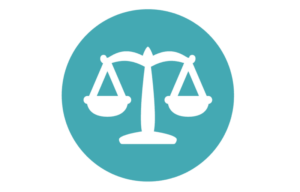Citizens Insurance Co of America has been roped into a pair of class action lawsuits that originate with Clearview AI. One of the lawsuits alleges that Clearview’s data collection practices violate Illinois’ Biometric Information Privacy Act, while the other is a federal lawsuit that similarly addresses the company’s potential misuse of personal information.

Citizens is not implicated in either case directly, but has become entangled thanks to its relationship with Wynndalco Enterprises. According to the lawsuits, Wynndalco purchased Clearview licenses, and then resold those licenses for profit to CDW-Government, which in turn passed them on to the Chicago Police Department. If the courts rule that Clearview violated privacy laws, then Wynndalco would have profited from the illegal distribution of personal information, which would violate BIPA (and other various laws) in its own right.
Wynndalco asked Citizens to assist with its legal defense, but Citizens argued that its “Distribution of Material in Violation of Statues” policy absolved the insurer of any responsibility in the matter. The company asked for a declaratory judgment that would have removed it from the case, but US District Judge John Lee has rejected the motion with a decision that states that Citizens was too lenient with its interpretation of its own policy.
In that regard, Citizen’s Distribution policy essentially states that it is not obligated to protect clients that violate the Telephone Consumer Protection Act, the CAN-SPAM Act, the Fair Credit Reporting Act, and the Fair and Accurate Credit Transaction Act. The policy also has a catch-all clause for clients that violate any other law that covers the “dissemination, disposal, collecting, recording, sending, transmitting, communicating or distribution of material or information.”
Citizens claimed that that final clause should create an exemption for BIPA, which regulates the sharing of biometric data. Judge Lee disagreed, citing a prior decision from the Illinois Supreme Court as precedent. He went on to explain that privacy as it relates to biometrics is materially different from privacy as it relates to other kinds of information, and that Citizens is therefore not exempt from the legal action. As a result, Citizens is obligated to continue defending Wynndalco Enterprises in the two complaints.
The ruling is noteworthy because it increases the number of companies that could find themselves ensnared in the BIPA dragnet. Clearview itself is accused of illegally scraping social media sites to build a massive facial recognition database that now contains more than 20 billion images. Several countries have already determined that the company’s practices violate their respective privacy laws.
Source: Reuters
–
April 6, 2022 – by Eric Weiss




Follow Us